
By Constance Gbedzo
The Bank of Ghana (2020-2024) faced significant public criticism and negative publicity, stemming from a number of high-profile issues.
The bad press focused on two primary areas: a perceived lack of transparency and accountability in its operations, particularly related to Ghana’s economic struggles, and the controversial and escalating cost of its new headquarters.
The central bank’s financial statements for the period revealed significant losses, with an operating loss of GH¢9.49 billion reported in 2024. This was largely driven by expenses related to Open Market Operations and exchange rate losses.
Some critics linked these losses to what they called “illegal” cash printing, a reference to the bank’s alleged practice of providing monetary support to the government.
The continuous depreciation of the Ghanaian cedi against major international currencies, particularly the US dollar, was a major source of public dissatisfaction. The Bank of Ghana’s efforts to stabilize the currency, including injecting billions of dollars into the forex market, were often seen as ineffective and temporary fixes.
While the banking sector cleanup (2017-2020) was a necessary measure to stabilize the financial system, the lack of transparency in its implementation, and the long-term effects continued to be a subject of debate and public criticism.
Then, the most prominent and widely criticized issue was the construction of the Bank of Ghana’s new head office in Accra. This project, which was ongoing during this period, attracted significant negative attention due to its ballooning costs. The project was initially budgeted at US$81.8million in 2020.However, the cost quickly surged to US121 million within eight months and was ultimately projected to exceed US$250 million by its commissioning in late 2024.
This dramatic increase, particularly in a dollar-denominated contract, was a major source of public outrage and raised serious questions about fiscal management and oversight. The Bank of Ghana was heavily criticized for its “feeble and anaemic defence” of the project and its refusal to be transparent about the final cost and procurement process. This lack of accountability fueled public suspicion and led to accusations of fiscal mismanagement and a “lawless” approach to governance.
Since being nominated by President John Dramani Mahama and taking office in February 2025, Dr. Johnson Asiama has quickly begun to implement his agenda as the Governor of the Bank of Ghana. His leadership is characterized by a focus on transparency, financial stability, and supporting economic growth.
Dr. Asiama, in a number of public fora, indicated a strong commitment to an era of transparency and communication. He has openly acknowledged the need for clearer communication regarding the Bank’s decisions. For instance, he has proposed publishing the voting outcomes of the Monetary Policy Committee (MPC) and enhancing the clarity of policy statements. This move is aimed at aligning the Bank of Ghana with international best practices and helping financial markets and businesses better anticipate policy direction. This approach is expected to reduce uncertainty and build public confidence in the central bank’s decisions.
Dr. Asiama has outlined six key priority areas to tackle Ghana’s economic challenges. These include addressing exchange rate volatility, controlling inflation, and strengthening the financial sector. He has announced plans for strategic interventions, such as a new foreign exchange law and targeted market operations, to improve reserves management and curb forex leakages. Additionally, the Bank of Ghana is deepening its participation in the Pan African Payment and Settlement System (PAPSS) to enable local currency trade across Africa, thereby reducing reliance on the US dollar.
A key focus is also on the stability of the banking sector. The Governor is working to address the issue of non-performing loans (NPLs) and weak risk management practices. The Bank is also updating the Banks and Specialized Deposit-Taking Institutions Act to enhance its resolution framework for distressed institutions. The financial sector is also seeing a push for enhanced cybersecurity and strengthened capital adequacy requirements.
Dr. Asiama is also embracing a digital future and financial inclusion. Under Dr. Asiama, the Bank of Ghana is implementing a digital strategy to modernize its operations and expand financial access. This involves leveraging financial technology (fintech) and mobile banking to serve underserved communities.
The Bank is also collaborating with banks, startups, and international partners to build a robust digital finance ecosystem that supports secure transactions and faster cross-border payments. A clear regulatory framework for digital assets is also in the works, ensuring that new financial innovations are introduced safely and in a structured manner.
Dr. Asiama’s quiet but firm approach to leadership, coupled with his deep experience within the Bank of Ghana, has been praised by industry leaders. His focus on evidence-based decision-making and his ability to steer the institution toward solutions rather than political debates have been seen as a refreshing development, setting the stage for renewed confidence and stability in Ghana’s financial system.
Then on the fiscal side, following his appointment as Minister for Finance in early 2025, Dr. Cassiel Ato Baah Forson has been at the forefront of Ghana’s efforts to achieve economic stabilization and long-term fiscal sustainability.
Building on his extensive experience as a former Deputy Minister for Finance and as the Ranking Member of Parliament’s Finance Committee, Dr. Forson has wasted no time in introducing a series of strategic policies and reforms. Critical among these are his focus on fiscal discipline and accountability, stabilizing the cedi and promoting local industry.
One of the central pillars of Dr. Forson’s work has been a strong push for fiscal discipline and transparency. He has outlined a comprehensive plan to address Ghana’s large accumulation of government payables, a legacy issue that has put a strain on the nation’s finances. To tackle this, he has initiated a government-wide audit of all outstanding commitments and payables, working with the Auditor General and independent audit firms to verify the legitimacy of these claims.
Furthermore, his ministry has introduced amendments to the Public Financial Management (PFM) Act. These changes are designed to prevent the recurrence of unapproved expenditures by mandating that no government contract can be approved without prior commitment authorization from the Ministry of Finance.
He has also established an Independent Fiscal Council to monitor adherence to new fiscal rules, including targets for the debt-to-GDP ratio and a required annual primary surplus. This approach is intended to restore confidence in Ghana’s financial management system and reinforce accountability across all government agencies.
A key challenge upon his assumption of office was the volatility of the Ghanaian cedi. Dr. Forson has been vocal in his commitment to strengthening the local currency. He has announced a number of measures, including working with the Bank of Ghana on foreign exchange management and leveraging the newly operationalized Goldbod initiative. The Goldbod, a system designed to give Ghana better control over its gold exports, is expected to boost foreign exchange reserves and reduce pressure on the cedi.
In addition to currency stabilization, Dr. Forson has championed a new policy aimed at restricting the importation of goods that can be produced locally. This initiative, part of a broader effort to stimulate domestic manufacturing, is intended to create jobs, protect local industries, and reduce the country’s reliance on imports. He has also committed to addressing revenue leakages at the ports in collaboration with the Ghana Revenue Authority (GRA).
Dr. Ato Forson’s leadership at the Ministry of Finance is defined by a strategic, data-driven approach to tackling Ghana’s economic issues. His focus on structural reforms, fiscal discipline, and supporting local industry has been met with optimism. His policies, from the PFM Act amendments to the Goldbod initiative, aim to not only address immediate economic challenges but also lay a stable foundation for long-term growth and prosperity.
The combined hands of Dr. Ato Forson and Dr. Johnson Asiama, their unique leadership styles, and combined experiences have produced positive macroeconomic performances just in eight months of His Excellency John Mahama’s second coming. The economy showed a strong start to the year, with a Q1 2025 GDP growth of 5.3%, surpassing the 4.9% growth in Q1 2024 and beating initial forecasts.
Headline inflation has fallen significantly, from 23.8% in December 2024 to as low as 12.1% by July 2025. The Bank of Ghana has a medium-term inflation target of 8±2%. The Ghanaian cedi has experienced a remarkable turnaround in 2025, appreciating significantly against the US dollar. As of late July and early August 2025, the interbank mid-rate has hovered around GH¢10.4-GH¢10.5 per US$1.
This appreciation is attributed to the Bank of Ghana’s tight monetary policy, improving foreign exchange inflows from commodity exports (gold and cocoa), and positive market sentiment following debt restructuring efforts.
The government’s fiscal consolidation efforts are also showing results. The fiscal deficit for 2025 is projected to narrow to around 3.9% of GDP, an improvement from the 4.1% recorded in 2024. Ghana has made significant progress in managing its public debt. The public debt-to-GDP ratio has fallen sharply to 43.8% by June 2025, a dramatic decrease from the 61.8% at the end of 2024.
In response to the rapid decline in inflation, the Bank of Ghana implemented a historic 300 basis points cut to its monetary policy rate in July 2025, bringing it down to 25%. This was the first rate cut in nearly a year and the largest in the central bank’s history, signaling confidence in the disinflationary trend.
While economic performance has been impressive, thus far, there remains great deal of work to do in order to attain sustainable economic inclusion for Ghanaians. Government should aggressively promote its 24 Hour Plus Economic programmes, as this has the potential to diversify the economy, engender entrepreneurship development and job creation, and guarantee import substitution.
I urge the Ministry of Finance to also take advantage of the good works of the Ghana Gold Board to introduce new sophisticated financial product in order to enhance the maturity and attractiveness of Ghana’s capital market, and help in deepening the financial markets.
This way, I believe the living conditions of Ghanaian can improve.
The author is a Risk & Enterprise Development Expert
The post Dr. Forson and Dr. Asiama: The two pair of hands Ghana would have missed appeared first on The Business & Financial Times.
Read Full Story

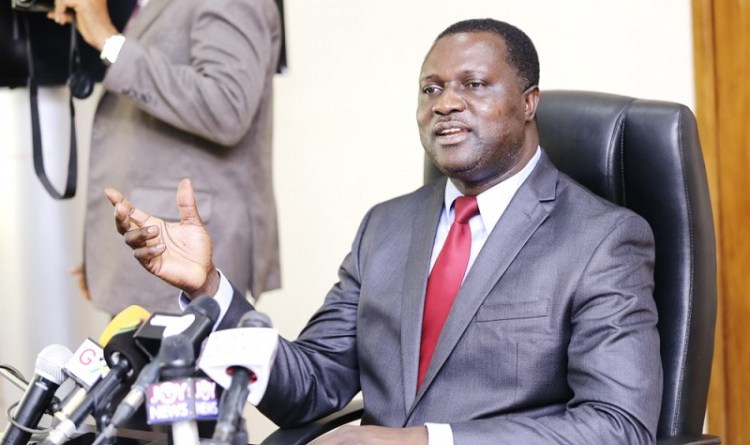



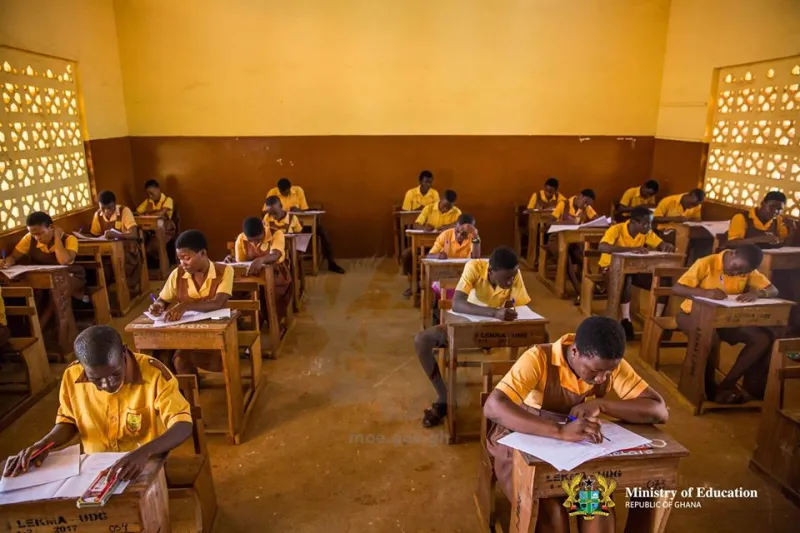


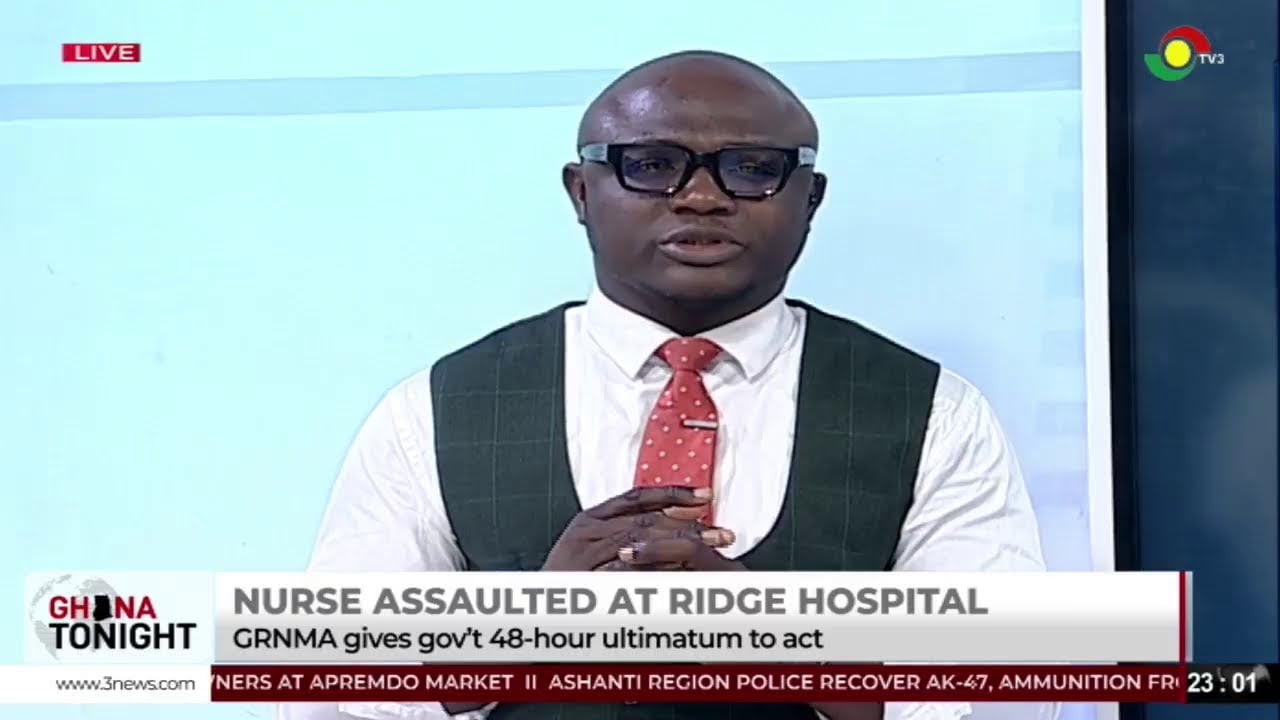


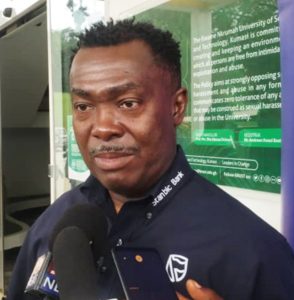

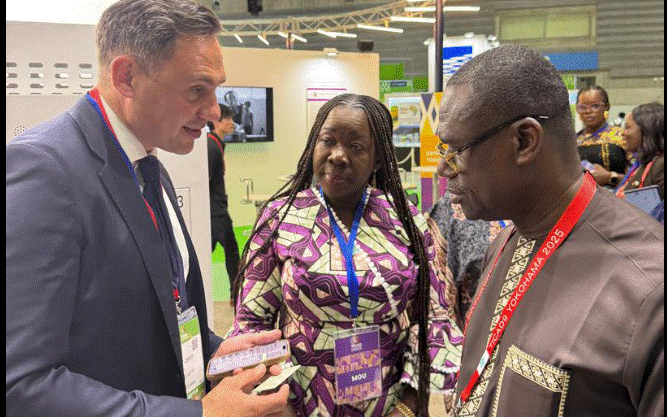
Facebook
Twitter
Pinterest
Instagram
Google+
YouTube
LinkedIn
RSS